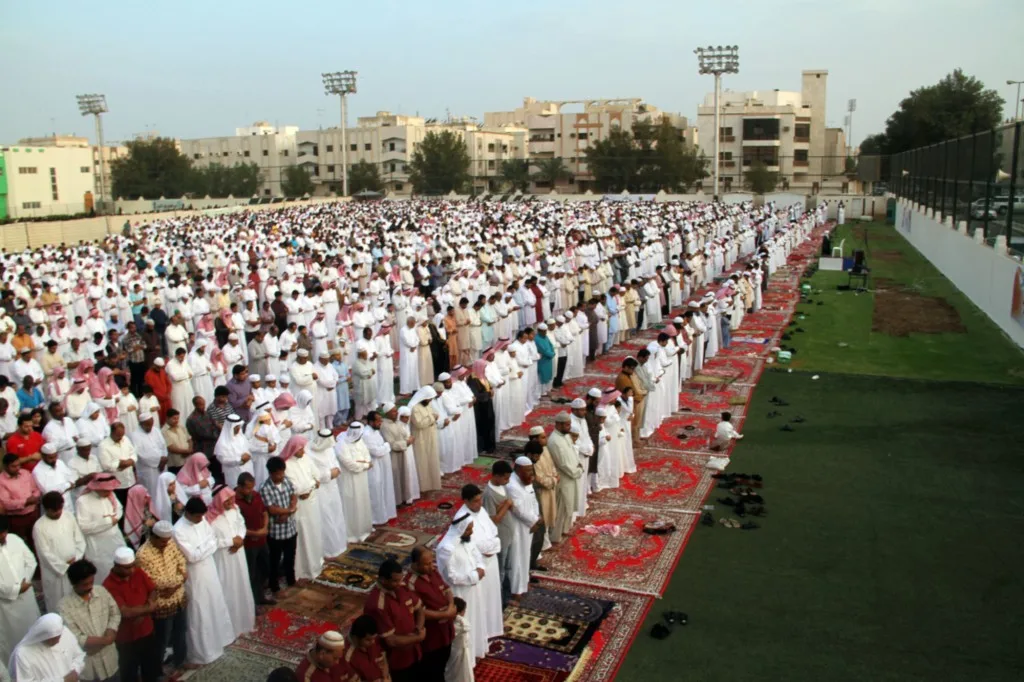 Whoever breaks his fast or is unable to fast during Ramadhaan due to an Islaamically permissible reason, then he is required to make up for this day; such as the one whose fast is nullified due to having had sexual intercourse or other than that. In that case, he is required to make up the fast for this day, as Allaah (Subhaanahu wa Ta’aala) says:
Whoever breaks his fast or is unable to fast during Ramadhaan due to an Islaamically permissible reason, then he is required to make up for this day; such as the one whose fast is nullified due to having had sexual intercourse or other than that. In that case, he is required to make up the fast for this day, as Allaah (Subhaanahu wa Ta’aala) says:
{…the same number (should be made up) from other days}, [Soorah al-Baqarah, Aayah 184]
It is recommended that he hasten to make up that which he has missed during Ramadhaan so as to relieve himself of the responsibility. Likewise, it is recommended that he makes up for that which he missed by fasting consecutively because doing so is like having fasted as such (during Ramadhaan).
However, if he does not immediately make up for that which he has missed, it is then permissible for him to delay it. This is because the available time-span (to make up the missed fasts) is open (until before the arrival of the following Ramadhaan).
Regarding all such obligations within which the time-span to perform that which is obligatory on a person is open, then it is permissible to delay it’s performance so long as there exists a firm intention to carry it out. It is also permissible to make up the days intermittently. However, if there is not enough time remaining during the month of Sha’baan preceding the following Ramadhaan, it becomes obligatory to make up the days consecutively, noting that it is not permissible to delay it until the arrival of the following Ramadhaan without an Islaamically acceptable reason.
It is narrated on the authority of ‘Aa.ishah, that she said:
((I used to have days to make up from Ramadhaan and it used to be that I was unable to make them up until Sha’baan)). It’s authenticity is agreed upon by al-Bukhaaree and Muslim.
So this hadeeth indicates that the time period within which it is permissible to make up the days missed during Ramadhaan is open (until before the arrival of the following Ramadhaan). If he was to delay in making up the fasts until the arrival of the following Ramadhaan, then he is required to fast the current fast of Ramadhaan and then make up for the missed fasts of the previous year afterwards. This is in addition to feeding a poor person half a saa’ of the food of the land for every day (remaining to be made up). And if the cause of his delaying making up the fasts until the arrival of the following Ramadhaan is Islaamically acceptable, then he is simply required to make up the missed days from the previous Ramadhaan.
If he was to die before the arrival of the following Ramdhaan whilst still having fasts to make up from the previous Ramadhaan, then there is nothing required of him since he died within the permissible time limit within which to make up the missed fasts.
Likewise, if he was to die after the arrival of the following Ramadhaan and the reason for the delay is Islaamically acceptable, such as illness and travel, then there is nothing required of him (from the estate (wealth) he leaves behind).
However, if the reason for the delay was Islaamically unacceptable, then it is obligatory to pay a penalty from the estate (wealth) he has left behind, sufficient to feed a poor person for every fast remaining to be made up.
Additionally, if he died whilst having any fasts remaining to be made up, such as the fast of ransom or an obligatory fast arising out of any short-coming from the performance of the Hajj, then he is required to feed a poor person for every fast remaining to be made up. This is done from the estate (wealth) he has left behind, noting that no-one is required to make up the fasts on his behalf. The reason for this is that this type of fast does not permit someone else to fast on his behalf whilst he is alive, and likewise is the case upon his death. And this is the opinion of the people of knowledge.
And whoever dies whilst he has any fasts to make up due to an oath or vow he has taken, then it is recommended for the one in charge of his affairs after his death to fast on his behalf as is confirmed in both al-Bukhaaree and Muslim. A woman came to the Prophet (sal-Allaahu `alayhe wa sallam) and said: “My mother has died whilst having fasts to make up due to a vow she made. Should I fast on her behalf?” He said: ((Yes)). With reference to the one in charge of his affairs after his death, then this implies the inheritor.
Shaykh Ibn Fowzaan
al-Mulakhkhas al-Fiqhee – Volume 1, Pages 271-272. fatwaonline.com

